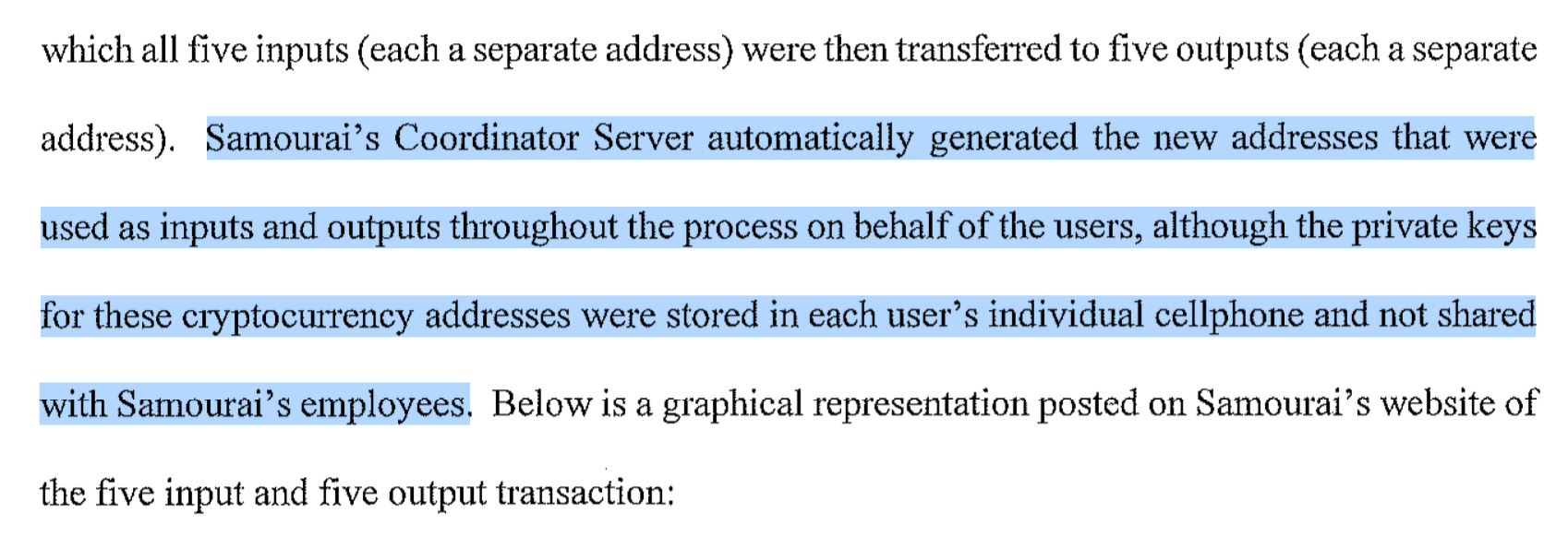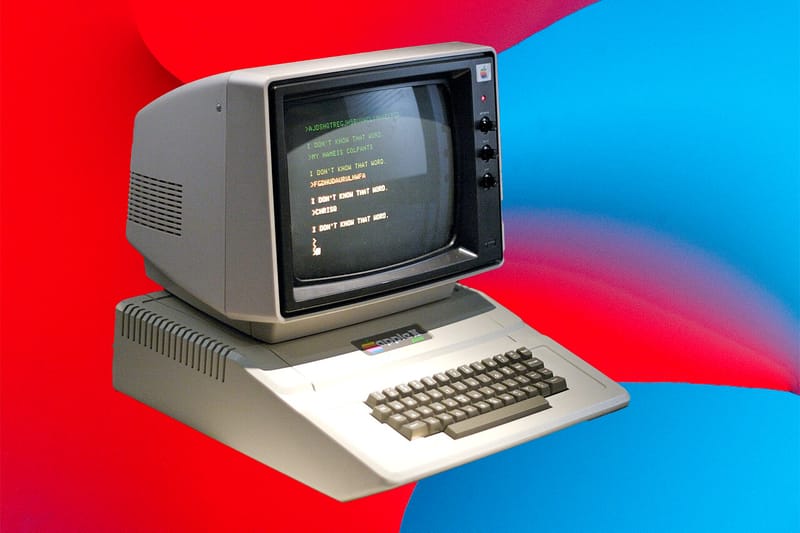New Samourai Indictment Paints Anonymity As A Crime
New Samourai Wallet indictment paints the developers as having built the privacy service for the sole purpose of serving criminals.

The Southern District of New York (SDNY) has filed a superseding indictment against Samourai Wallet developers Keonne Rodriguez and William Hill.
The indictment expands the charged timeline by two months from February 2024 to April 2024, adding $150 Million to the alleged criminal proceeds laundered, now totaling $250 Million.
The new indictment additionally adds "drug trafficking" to the description of allegedly laundered funds, meaning that it may be reasonable to assume that the US Government has newly identified BTC allegedly obtained through the sale of illegal substances that passed through Samourai Wallet's service.
The new indictment additionally removes all but one mention of "unlicensed" money transmission, including all references to 18 USC §1960(b)(1)(B) governing federal money service business licensing requirements, in line with Deputy Attorney General Todd Blanche's April memo.
The new indictment yet continues to charge the developers under Count Two with conspiracy to operate an unlicensed money transmitting business, despite the fact that many other jurisdictions have been dropping cases based on the Blanche memo as well as regulatory uncertainty.
Anonymity as a Crime
The new indictment extends the Government's description of Samourai Wallet to include that "the defendants [...] intentionally did not require Samourai customers to provide 'know your customer' or 'KYC' information to Samourai," noting that "Rodriguez and Hill advertised and promoted the fact that Samourai's customers could use the Whirlpool or Ricochet functions without providing any identifying information to Samourai."
"This deliberate decision to not implement KYC encouraged and enabled its customers to engage in transactions meant to conceal the nature, location, source, ownership, and control of criminal proceeds by making those transactions more difficult to trace," SDNY states.
The new indictment continues to highlight that the developers "specifically promoted Samourai for its ability to allow customers to engage in anonymous transactions," citing Hill's X (formerly Twitter) user name: "TDev [No KYC, no T&C]".

The indictment continues to cite statements made on the Samourai Wallet website, stressing that the developers promoted Samourai's lack of KYC procedures, quoting that Samourai is described as a "modern bitcoin wallet hand forged to keep your transactions private your identity masked and your funds secured," as well as a descrption which read "[b]e your own Swiss bank ... No email address, no ID checks, no hassle."
It is unclear why SDNY continues to allege that Samourai Wallet would have needed to deploy KYC checks, and why their promotion of no-KYC would cause legal liability, as non-custodial wallets have largely been understood to be exempt from KYC appliance.
SDNY Doubles Down on Technical Inaccuracies
While the original Samourai Wallet indictment was already riddled with technical inaccuracies, such as alleging that the Samourai Wallet software created new addresses for users (it doesn't). SDNY is doubling down on these claims in the superseding indictment, rather than correcting them.
The new indictment now alleges that "Samourai 'cut down' the cryptocurrency into correct sizes for a chosen pool," and that "Samourai returned back to the user any leftover funds from this transaction that were too small to enter the Whirlpool by replacing them in a separate address," which appears to imply that these actions were executed by the Samourai Wallet developers.
To compare, the original indictment stated that "the cryptocurrency is 'cut down'", and that leftover funds "are placed in a separate address and provided back to the Samourai user." While not explicitly stating that these events are caused by the Samourai Wallet software – and not the developers – it appears to be a more accurate description of the service than can be found in the new indictment.
The new indictment, just as the old indictment, continues to allege that the Samourai coordinator "generated new addresses [...] on behalf of users, although the private keys for these cryptocurrency addresses were stored in each user's individual cellphone and not shared with Samourai's employees."
For reference, it continues to be technically impossible to generate new addresses without having control over the private keys.

Overall, the superseding indictment appears to make no distinction between Samourai Wallet the entity and Samourai Wallet the software in its description of events, running the risk of misleading the judge on how much control the developers had over the funds that passed through its service.
New Indictment Adds Additional "Evidence" to Demonstrate Alleged Criminal Intent
The superseding indictment makes several language changes to the allegations against Hill and Rodriguez, most notably changing allegations of the developers "knowledge and intent for criminal proceeds to be laundered by Samourai" to "knew and intended," which appears to be a more definitive phrasing.
This more aggressive line of accusations is highlighted by an additional paragraph in the superseding indictment, in which SDNY claims that Hill and Rodriguez "designed Samourai in whole and in part for the purpose of being used by criminals." Additionally, the new indictment alleges that the developers "knew that such criminals were in fact using Samourai Wallet to engage in money laundering."
To underscore their allegations, the superseding indictment introduces a total of 10 new pieces of evidence, doubling the evidence presented to allege criminal intent in the original indictment.
While identifying an instance in which the Samourai Wallet developers tracked illicit proceeds which were sent through "Mixer-1", likely referring to the now non-custodial coinjoin wallet Wasabi Wallet, with which the Samourai Team has had a long term dispute, the new indictment appears to fail to corroborate the allegation that Samourai Wallet developers did indeed know that illicit proceeds were sent through their service.
An exception are two newly introduced X (formerly Twitter) post referenced in the new indictment, in which the Samourai Developers invited Iranian citizens to use Samourai's Whirlpool service, as well as a post illustrating that Iran is the second largest country by Samourai Wallet downloads after the United States.
Putting on our critical thinking hat, instead of exemplifying criminal intent, Samourai Wallet's posts on Iran rather seem to demonstrate that the developers felt to be operating in the full realm of the law by developing communications software rather than a financial service – similar to how the privacy project Tor advertises its services to citizens of US sanctioned jurisdictions, such as Iran.

Most notably, SDNY highlights a post on X (formerly Twitter) made by the Samourai Wallet account stating that the easy bypassing of Bank Secrecy Act mandated currency transaction reports, which require the reporting of transactions above $10,000, led to the creation of "a new crime called 'structuring' to go along with the newly invented crime of 'money laundering'".
According to the Government, the post demonstrates "knowledge of and lack of support for federal criminal money laundering laws".

The original post quotes ShapeShift founder Erik Voorhees, who criticizes Bank Secrecy Act reporting requirements for widespread surveillance illustrated by an excerpt of Ego Death Capital General Partner Lyn Alden's book Broken Money, in which the author lays out that currency transaction reports have never been adjusted for inflation, and therefore span a much wider surveillance net than arguably intended in the 1970s.
Independent journalism does not finance itself. If you enjoyed this article, please consider making a donation.






